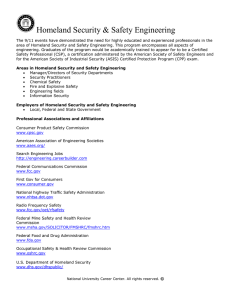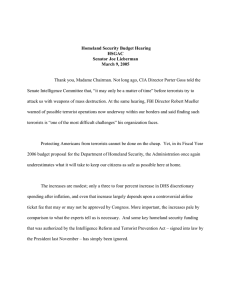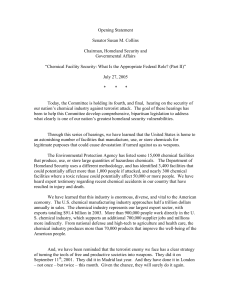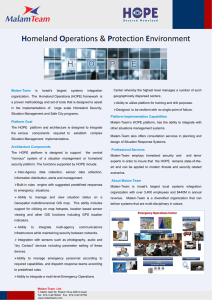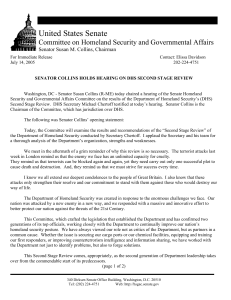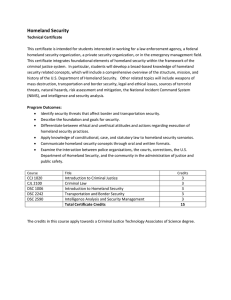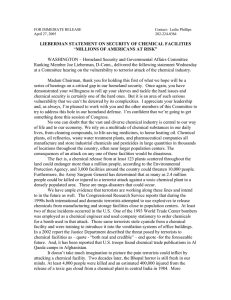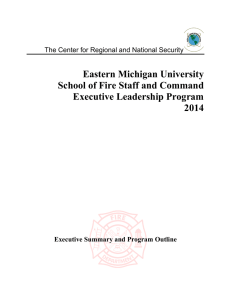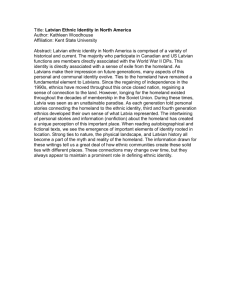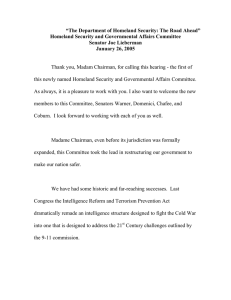United States Senate Committee on Homeland Security and Governmental Affairs
advertisement
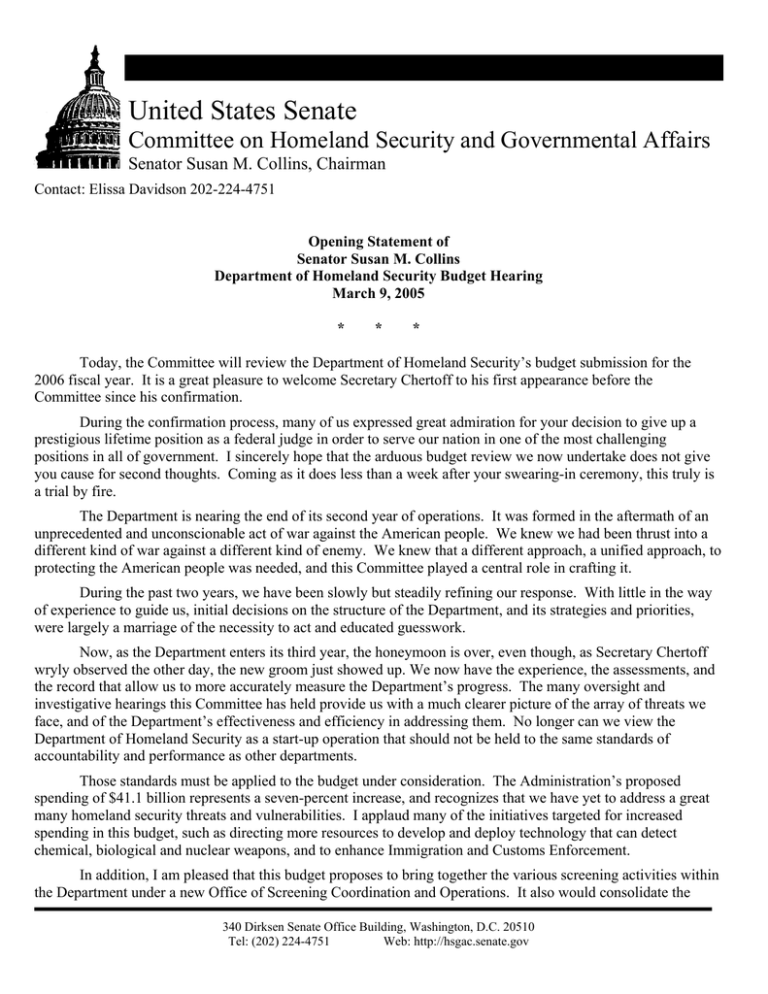
United States Senate Committee on Homeland Security and Governmental Affairs Senator Susan M. Collins, Chairman Contact: Elissa Davidson 202-224-4751 Opening Statement of Senator Susan M. Collins Department of Homeland Security Budget Hearing March 9, 2005 * * * Today, the Committee will review the Department of Homeland Security’s budget submission for the 2006 fiscal year. It is a great pleasure to welcome Secretary Chertoff to his first appearance before the Committee since his confirmation. During the confirmation process, many of us expressed great admiration for your decision to give up a prestigious lifetime position as a federal judge in order to serve our nation in one of the most challenging positions in all of government. I sincerely hope that the arduous budget review we now undertake does not give you cause for second thoughts. Coming as it does less than a week after your swearing-in ceremony, this truly is a trial by fire. The Department is nearing the end of its second year of operations. It was formed in the aftermath of an unprecedented and unconscionable act of war against the American people. We knew we had been thrust into a different kind of war against a different kind of enemy. We knew that a different approach, a unified approach, to protecting the American people was needed, and this Committee played a central role in crafting it. During the past two years, we have been slowly but steadily refining our response. With little in the way of experience to guide us, initial decisions on the structure of the Department, and its strategies and priorities, were largely a marriage of the necessity to act and educated guesswork. Now, as the Department enters its third year, the honeymoon is over, even though, as Secretary Chertoff wryly observed the other day, the new groom just showed up. We now have the experience, the assessments, and the record that allow us to more accurately measure the Department’s progress. The many oversight and investigative hearings this Committee has held provide us with a much clearer picture of the array of threats we face, and of the Department’s effectiveness and efficiency in addressing them. No longer can we view the Department of Homeland Security as a start-up operation that should not be held to the same standards of accountability and performance as other departments. Those standards must be applied to the budget under consideration. The Administration’s proposed spending of $41.1 billion represents a seven-percent increase, and recognizes that we have yet to address a great many homeland security threats and vulnerabilities. I applaud many of the initiatives targeted for increased spending in this budget, such as directing more resources to develop and deploy technology that can detect chemical, biological and nuclear weapons, and to enhance Immigration and Customs Enforcement. In addition, I am pleased that this budget proposes to bring together the various screening activities within the Department under a new Office of Screening Coordination and Operations. It also would consolidate the 340 Dirksen Senate Office Building, Washington, D.C. 20510 Tel: (202) 224-4751 Web: http://hsgac.senate.gov research, development, test, and evaluation activities of the Science and Technology Directorate into a single accountable authority. It is initiatives such as these that will increase efficiency, eliminate duplication of effort, and help build unity within the Department. At the same time, however, I find several provisions to be troubling. The proposed cut of more than 30 percent in state homeland security grant programs, in addition to proposed cuts in other programs for our first responders, shortchange those on the front lines in the war on terror. The attacks of September 11th were directed against two great centers of our nation’s financial and military power, but we know that the enemy we face is nothing if not opportunistic. He relishes the element of surprise and thus will strike wherever we leave ourselves vulnerable. The 9/11 terrorists planned and trained in small cities and towns throughout the nation. Two of the hijackers, including the ringleader, departed from Portland, Maine. Terrorist cells and financing operations have been uncovered in such places. From farms and feedlots to power plants and chemical facilities, the entire length and breadth of our nation offers targets of interest to the terrorists. All states must receive a fair share of funding, and that funding must be delivered in a way that allows the states to apply it with the flexibility local circumstances require. Last month, with Senators Carper, Lieberman, Coleman, and others, I reintroduced my Homeland Security Grant Enhancement Act to guarantee that fairness and flexibility, but I believe it is crucial that the budget itself reflects these priorities. I also am very concerned that this budget eliminates the Technology Transfer grant program. This program gets needed anti-terrorism and homeland security technology into the hands of law enforcement and first responders quickly and efficiently, and I believe it should be restored. Coming from a state with three international cargo ports, I am very disappointed with the pace with which we are securing our seaports. Incidents of human smuggling aboard cargo containers are becoming increasingly commonplace, and the interdictions result more from chance than from any coherent policy. The lack of a separate line item in this budget for Port Security Grants does not reflect the importance of the maritime industry to our security and our economy. In addition, the Coast Guard is one of our best defenses, yet the Deepwater modernization remains underfunded. I realize that this budget does not necessarily reflect the Secretary’s views and priorities, as it was constructed prior to his nomination. I hope, therefore, that he will listen carefully to the concerns raised today as he presents what I am sure will be a vigorous defense of a budget he inherited. ###
